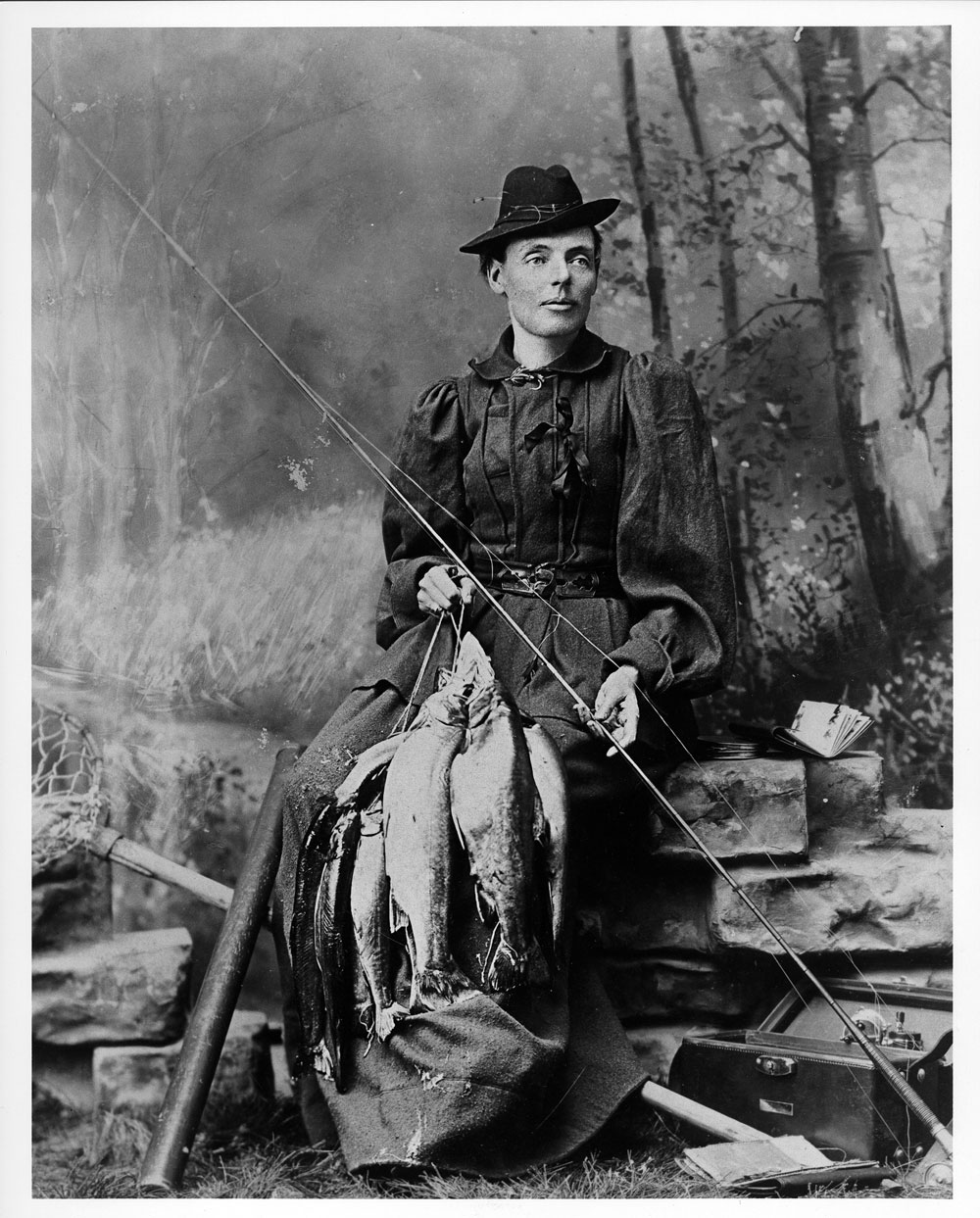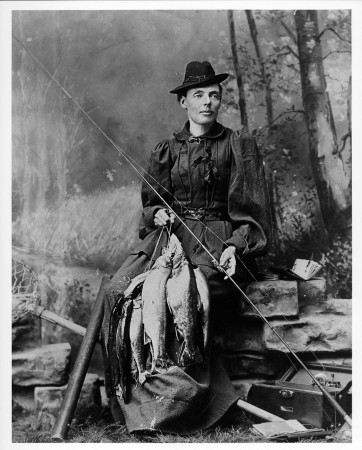Fly Rod Crosby, the First Maine Guide| New England’s Gifts
When Maine passed an 1897 bill requiring hunting guides to register with the state, the first license issued went to ‘Fly Rod’ Crosby, a sportswoman and journalist whose natural flair for public relations had helped establish western and northern Maine as outdoor-sports destinations. Cornelia Thurza Crosby was born in Phillips, Maine, on November 10, 1854. […]

“Fly Rod” Crosby, photographed in Edwin Starbird’s studio, c. 1890. “I would rather fish any day than go to heaven,” she once wrote. Her friend Louis Sockalexis, a Penobscot Indian and pro baseball player, said, “Her face is white, but her heart is the heart of a brave.”
Photo Credit : Collections of the Maine State Museum
Photo Credit : Collections of the Maine State Museum
When Maine passed an 1897 bill requiring hunting guides to register with the state, the first license issued went to ‘Fly Rod’ Crosby, a sportswoman and journalist whose natural flair for public relations had helped establish western and northern Maine as outdoor-sports destinations.
- Cornelia Thurza Crosby was born in Phillips, Maine, on November 10, 1854. Her father, a storekeeper and businessman, died of tuberculosis a month before her second birthday.
- In 1886, a friend presented Crosby with a five-ounce bamboo rod. She became so adept at fly fishing that friends called her “Fly Rod,” a nickname she started using as an outdoor writer in 1889.
- “Fly Rod’s Notebook” ran in Maine newspapers and in publications as far away as Boston, New York, and Chicago. Starting in 1901, she wrote regularly for the national magazine Field & Stream.
- Crosby visited Round Mountain Pond, west of Ashland, Maine, in the summer of 1891, and while there caught 52 trout in 44 minutes of fishing. At the time, she claimed that the feat was unmatched by any woman and had been accomplished by only five men.
- An early proponent of catch and release, Crosby is said to have caught more than 200 fish in a single day, and some 2,500 trout during the summer of 1893.
- Crosby helped create Maine’s popular exhibit at the first New York Sportsmen’s Exposition, held in May 1895 at Madison Square Garden. The display, called “Camp Maine Central,” featured a 10×13-foot log cabin and dozens of mounted animals and fish. For the 1896 show, Fly Rod added tanks of live trout and salmon and decked herself out in a daring calf-length doeskin skirt, rifle in hand.
- As her fame grew, Crosby was hired by the Maine Central Railroad as its first publicity agent. Her job was to write about things that would attract people to Maine, not necessarily about the railroad.
- Although initially opposed, Crosby came to support the issuance of hunting and fishing licenses, with proceeds funding Maine’s Department of Fish & Game (now Inland Fisheries & Wildlife). She was a vocal advocate for game preservation, catch limits for fish, kill limits for deer, and closed seasons for big game.
- According to a newspaper account, Crosby returned to Rangeley Lake to fish when she was in her eighties, staying two weeks at Bald Mountain Camps.
- Fly Rod Crosby died in Lewiston on Armistice Day 1946, just a day after her 92nd birthday.
Joe Bills
Associate Editor Joe Bills is Yankee’s fact-checker, query reader and the writer of several recurring departments. When he is not at Yankee, he is the co-owner of Escape Hatch Books in Jaffrey, NH.
More by Joe Bills

